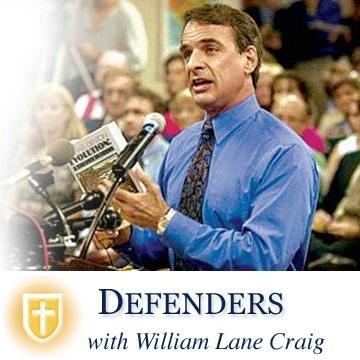Defenders: Doctrine of Christ (Part 42): The Work of Christ (35) - Resurrection Hypotheses
Defenders Podcast
William Lane Craig
4.7 • 724 Ratings
🗓️ 31 January 2024
⏱️ 38 minutes
🧾️ Download transcript
Summary
Transcript
Click on a timestamp to play from that location
| 0:00.0 | Welcome to Defenders, the teaching class of Dr. William Lane Craig. |
| 0:05.8 | Today, the Doctrine of Christ, part 42. |
| 0:09.3 | For more information and resources from Dr. Craig, go to reasonable faith.org. |
| 0:15.2 | I said that a case for the historical resurrection of Jesus will involve two stages. First is assembling |
| 0:23.6 | the facts to be explained, and secondly there will be assessing which is the best explanation |
| 0:31.3 | of those facts. Now we've seen that there are principally three facts that any adequate historical hypothesis must |
| 0:39.5 | account for. The discovery of Jesus' empty tomb, his post-mortem appearances to various individuals |
| 0:47.6 | and groups, and finally the very origin of the disciples' belief in his resurrection. |
| 0:54.9 | Today, we now want to turn to various competing hypotheses that are attempts to explain these |
| 1:03.9 | three facts, and we want to assess their adequacy to determine which is the best explanation. Now, how do historians go about determining |
| 1:15.6 | what is the best explanation for any body of facts? Well, according to the professional |
| 1:22.4 | historian C. B. McCullough, in his book, Justifying Historical Descriptions, |
| 1:31.2 | there are a number of criteria that historians employ in weighing competing historical hypotheses. |
| 1:39.6 | And these include things like explanatory scope. That is to say, does the hypothesis explain a wider range of data than rival hypotheses? |
| 1:52.8 | Second would be explanatory power. |
| 1:56.6 | Does the hypothesis render the evidence more probable than explanatory alternatives? |
| 2:03.6 | Thirdly, would be plausibility. |
| 2:07.6 | Is the proposed explanation more plausible than rival hypotheses? |
| 2:15.6 | Number five would be ad hocness, that is to say the degree of contrivedness, |
| 2:23.3 | the degree to which the hypothesis has to postulate certain things for which there is no independent evidence. |
| 2:34.9 | And then accord with accepted beliefs. |
| 2:38.4 | To what degree is the hypothesis in accord with widely accepted beliefs? |
... |
Please login to see the full transcript.
Disclaimer: The podcast and artwork embedded on this page are from William Lane Craig, and are the property of its owner and not affiliated with or endorsed by Tapesearch.
Generated transcripts are the property of William Lane Craig and are distributed freely under the Fair Use doctrine. Transcripts generated by Tapesearch are not guaranteed to be accurate.
Copyright © Tapesearch 2025.

